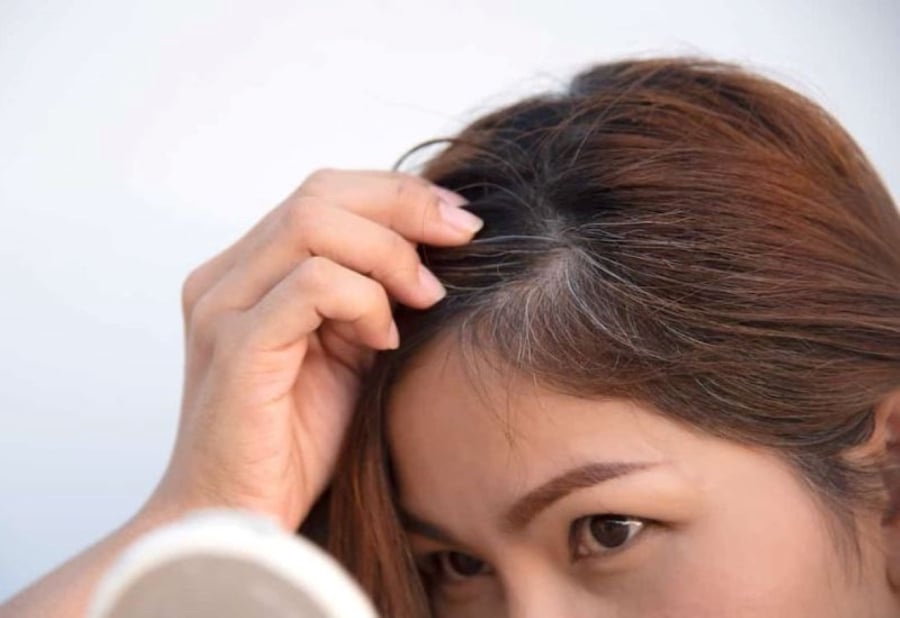Nutritional deficiencies or impaired nutrient transport to the hair can lead to the development of gray hair. The following three nutrients, according to experts, have a significant impact on hair health:
Protein Deficiency
Protein is an essential component of Keratin, the fundamental building block of hair, which is synthesized from proteins. A long-term insufficient protein intake can cause hair to turn gray prematurely.
Additionally, poor hair quality, roughness, and yellowing are all associated with inadequate protein intake.

Micronutrient Deficiency
Just as protein is the primary material for hair, micronutrients such as copper and zinc act as catalysts for melanin production.
Melanin is formed from tyrosine through the action of tyrosinase, which converts it into dopa, followed by oxidation. Therefore, the activity of tyrosinase directly influences the effectiveness and outcome of this process.
Micronutrients like copper and zinc can impact tyrosinase activity. A deficiency in these micronutrients can decrease tyrosinase activity, affecting melanin synthesis.
Vitamin B Deficiency
Vitamin B plays a crucial role in the body’s metabolic processes and is essential for hair and nail growth. It also ensures the normal functioning of melanocyte cells.
A deficiency in Vitamin B, for any reason, can lead to hair loss, graying, dry hair, and other related issues.
Aside from nutritional deficiencies, there are other factors that can contribute to increased gray hair, including mental stress, genetic predisposition, and physical ailments.
Other Causes of Premature Graying
Typically, hair pigment cells begin to decline after the age of 35, leading to gray hair. However, premature graying can occur during adolescence or in the 20s.
- Genetic factors
- Adolescents with digestive disorders may have impaired absorption of nutrients through the digestive tract. Unhealthy eating habits can also result in imbalanced nutrition.
- Certain systemic diseases, such as pernicious anemia, cardiovascular issues, and thyroid dysfunction, can contribute to the appearance of gray hair.
- Intellectual workers are prone to overloading and prolonged mental stress, which can disrupt hormone balance.
- Sleep deprivation: Irregular work and rest patterns can decrease growth hormone secretion and slow down blood circulation, impacting hair health.
- Lack of exercise: Reduced physical activity leads to poor blood circulation, affecting scalp health and melanocyte function.
































